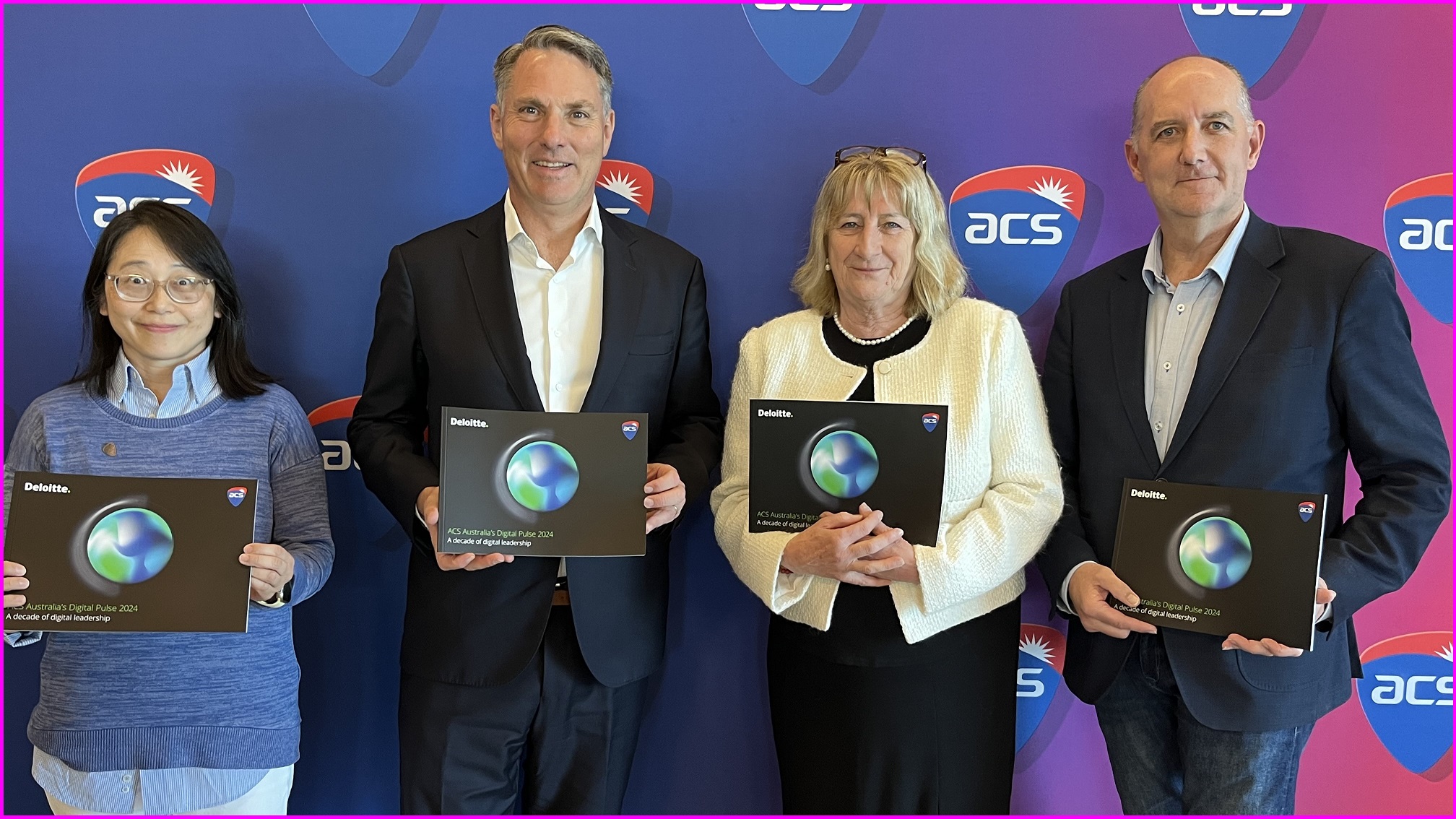Australia is struggling to find technology workers with the right cyber security and artificial intelligence skills but could tap 1.1 million “near tech” workers with similar capabilities to reskill and support the workforce, ACS’ 10th annual Australia’s Digital Pulse report has found.
ACS is the publisher of Information Age and the professional association of Australia’s technology professionals.
Demand for cyber security skills has increased by 80 per cent in Australia since 2020 amid a similar increase in cyber crime, according to the tenth edition of Australia’s Digital Pulse, written by Deloitte Access Economics and launched today by Deputy Prime Minister, Richard Marles, in Sydney.
"Like many other sectors right now, IT and tech is needing an uplift in the workforce to support the demands required of it,” said Marles.
While Australia’s technology workforce now encompassed more than 1 million workers, the report argued an extra 300,000 people would be needed by 2030 due to “current business demand”, equating to around 52,000 new workers per year.
If current trends continue, Australia will need 26,000 workers reskilling into technology occupations each year for the rest of the decade, Digital Pulse also found.
Reskilling
Workers in “near tech” jobs which could reskill for roles in tech included mathematicians, advertising and marketing professionals, and account clerks, among others.
The industry’s traditional sources of new talent were also under threat, the report argued, given the government’s reduced permanent migration intake and forthcoming cut to international student numbers.
“Australia has long faced a chronic tech skills shortage, but this report makes clear that in the face of a rapidly evolving cyber security landscape and strong adoption of AI into the workplace, we need to be ensuring the nation has the skills needed by industry and the community," said ACS CEO Josh Griggs.
“Technology is touching every part of society, particularly businesses, and for Australia to be competitive globally, we need to ensure the nation has the skillsets required to make the most from these emerging platforms.
“We should also keep in mind that technology jobs are well paid, and tech companies are among the fastest growing businesses on the planet. If we have the right skills, we can ensure more Australians are part of this dynamic sector."

There are 1.1 million workers who have similar skills and tasks to tech roles who could support tech workforce growth, Digital Pulse found. Photo: Shutterstock
Despite a surge in domestic students choosing IT studies during the pandemic, enrolments have now dropped, with a 10 per cent decline in 2022, Griggs added.
And while 70 per cent of all parents would encourage their children to pursue a career in technology, only half of parents outside of technology roles or professional services would recommend tech as a career.
Australia’s technology sector contributed over $124 billion to the local economy in the 2023-24 financial year, the report found.
The nation also registered $8 billion in technology exports in the same period, marking 400 per cent growth over the past decade.
Digital skills gap prevents workers joining tech
Reskilling thousands of Australians for roles in the technology workforce still faced significant challenges, Digital Pulse found.
Warning of potential declines in reskilling in coming years amid a reported slowdown in professional workers changing careers, the report said 38 per cent of workers considering a move to the tech sector found a lack of time and financial support prevented them from improving their digital skills.
The same percentage of workers considering changing industries were also unsure about how to make that transition.
More consideration and value should be placed in short courses, certificates, and so-called microcredentials as pathways into the tech industry according to the report, which suggested employers “need to be more accepting of the alternative pathways workers might take to acquire digital skills”.
ACS President Helen McHugh said this tenth edition of Digital Pulse is a testament to how far we have come as a tech community, "but it also serves as a wake-up call for the challenges we must address head-on".
“This report is more than a reflection of past achievements – it’s a roadmap for the future.
"For Australia to remain competitive in the global digital economy, we need to ensure our workforce is equipped to handle the rapid advancements in AI and cybersecurity.
“ACS remains committed to advocating for policies and initiatives that support a strong, diverse, and future-ready tech workforce."
The report recommended 12 key actions to support the growth of Australia’s tech workforce, including business and government paying workers while they learned tech skills, increasing the number of paid work placements for IT students, and better certification schemes to recognise migrants’ existing capabilities.
It also recommended a campaign to inform parents and students about careers in tech, more intiatives to train workers and students on how to take advantage of AI, and a federal government grant program to support tech startups led by women.
Last year's Digital Pulse called for the country to take greater action on AI, which it forecast would disrupt the overwhelming majority of local jobs in the coming years.
The 2024 report can be downloaded from the ACS website.










